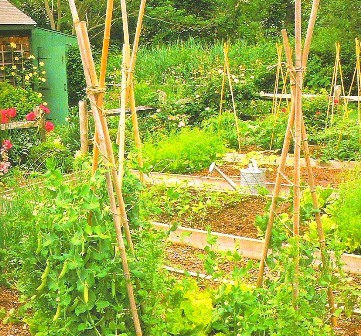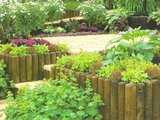|
Raised Vegetable Garden Pros and Cons  A raised vegetable garden tends to become more and more appealing to gardeners. I personally know a lot of people who are very interested in making a raised veggie garden but are not quite sure of where to start. Providing info about creating a raised vegetable garden is something that I enjoy because I think it’s one of the easiest ways to garden and it also excites me. The first question I get asked a lot is what’s a raised bed garden and that brings me to my first point… What’s a Raised BedA raised bed garden is where the soil is enclosed in wooden frames and stones. The beds contain some native soil, compost and imported soil. The vegetables are usually planted closer than in a traditional row vegetable garden. This type of planting promotes a superior harvest derived from a small area and that’s why I appreciate this type of gardening. Having raised beds means that you don’t have to dig often and the process involves placing organic matter on top of the soil to get some superb quality veggies. You can also have as many layers as you want. Take a look at these easy instructions for building raised beds. The Benefits of Raised BedsWhy Raised Beds for Gardening
Disadvantages of Raised BedsRaised Vegetable Garden ConsYes as much as I love having a raised vegetable garden, these are the cons that I’ve come across.
Why not give it a try if you really want to and if you can easily cover the cost for setting it up.
|









